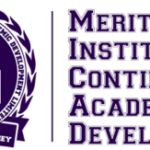
In modern business organizations, the forces of change are constantly at work. The size, strategy, structure, and motivation of employees underline the need for a creative touch in successfully piloting their affairs. Modern technology, new ideas, and new products appear day after day in order to cater to the changing trends of consumer tastes and needs.
The seemingly endless competitive drive to sustain existing markets and capture new ones necessitates extremely careful handling of refined consumer requirements. It is the efficiency of the supervision system and supervisory skills that regulate productive activities through the coordinated use of material and human resources.
Supervision is also the art of bringing about the desired result through the application of skills.
Supervision can be defined as the function of getting things done through people and directing the efforts of individuals as well as groups towards the achievement of a common objective.
It is concerned with the direction and control of various activities, following the advice and suggestions of the management, to attain the objectives of the organization.
It is also defined as the execution or implementation of the processes such as planning, organizing, directing, controlling, and following up on the progress achieved on the job and accomplishing the stated objectives by the efficient use of human and other resources.
Supervision deals with the achievement of specific objectives. Generally, the effectiveness of a supervisor is measured by the extent to which these objectives are achieved. Hence supervisors focus their attention and efforts on bringing about successful action. They know where to start, what to do to keep things moving, and how to follow the directions of their managers.
Supervision is a distinct activity that can be learned and practiced in real work situations. It deals with not only monitoring the activities of the team, but also improving the work environment and stimulating people to perform more efficiently. Therefore, the activity of supervision requires special skills, qualifications, talent, and authority to achieve the common goal of the organization.
To supervise means to manage people, administer, and be in the driver’s seat in managing the affairs of the section/department. It is the supervisors’ responsibility to create a link between the workforce and the management. Since they are first-line managers, they need to focus their attention on team building and motivating the workforce.